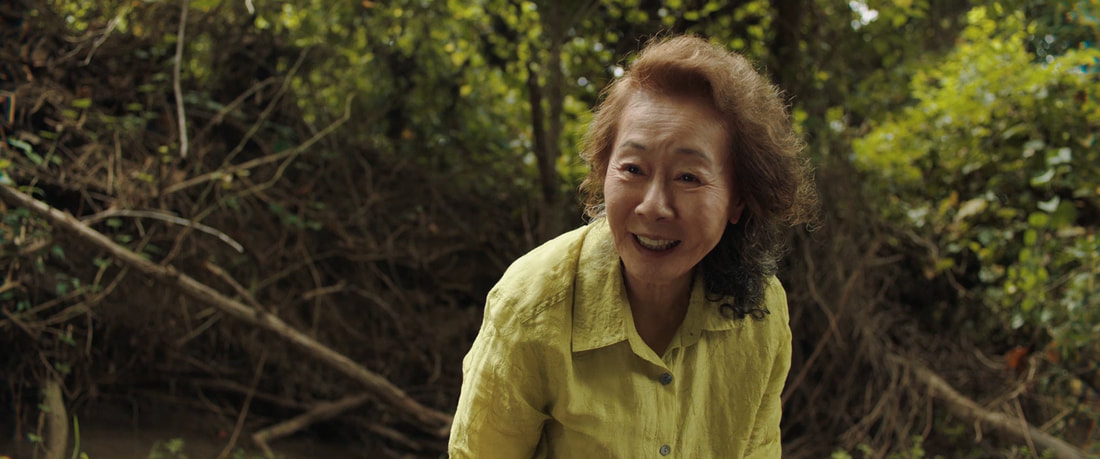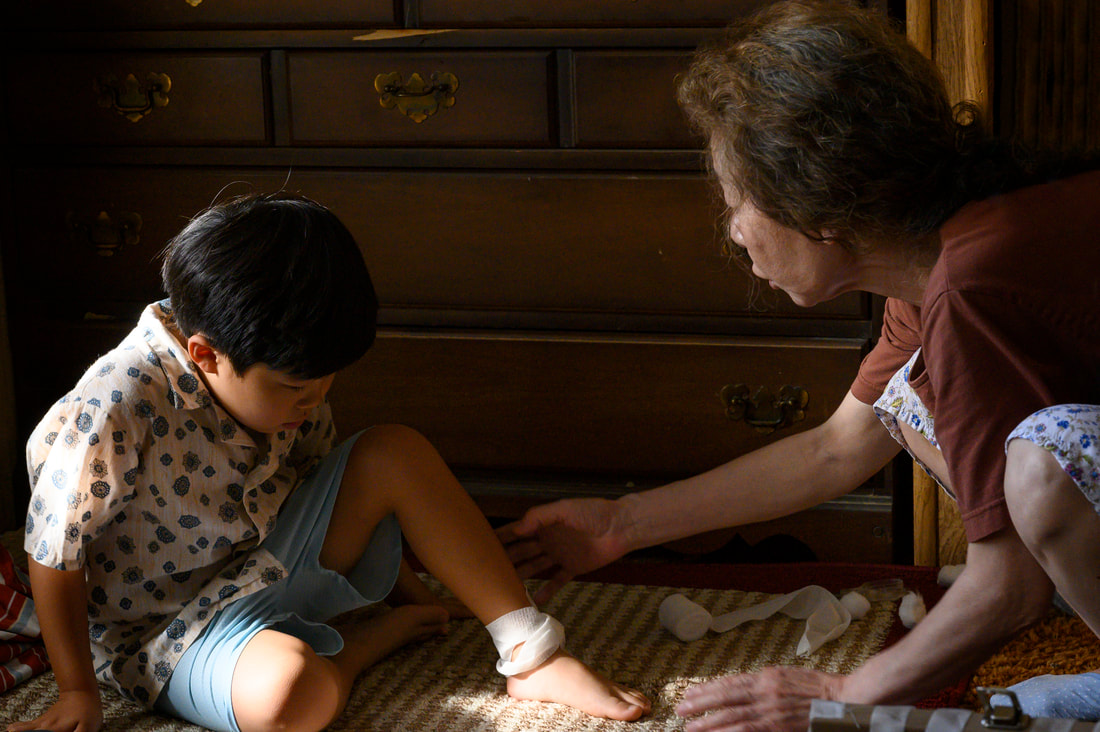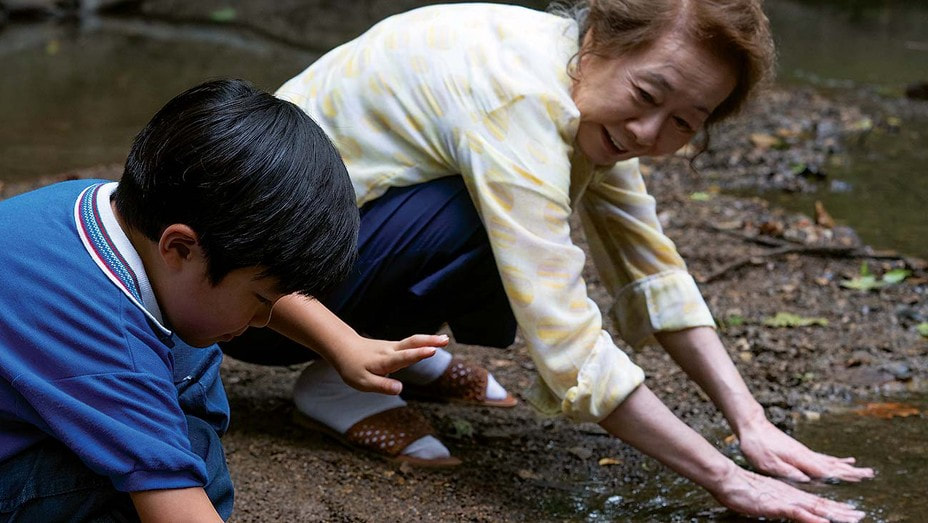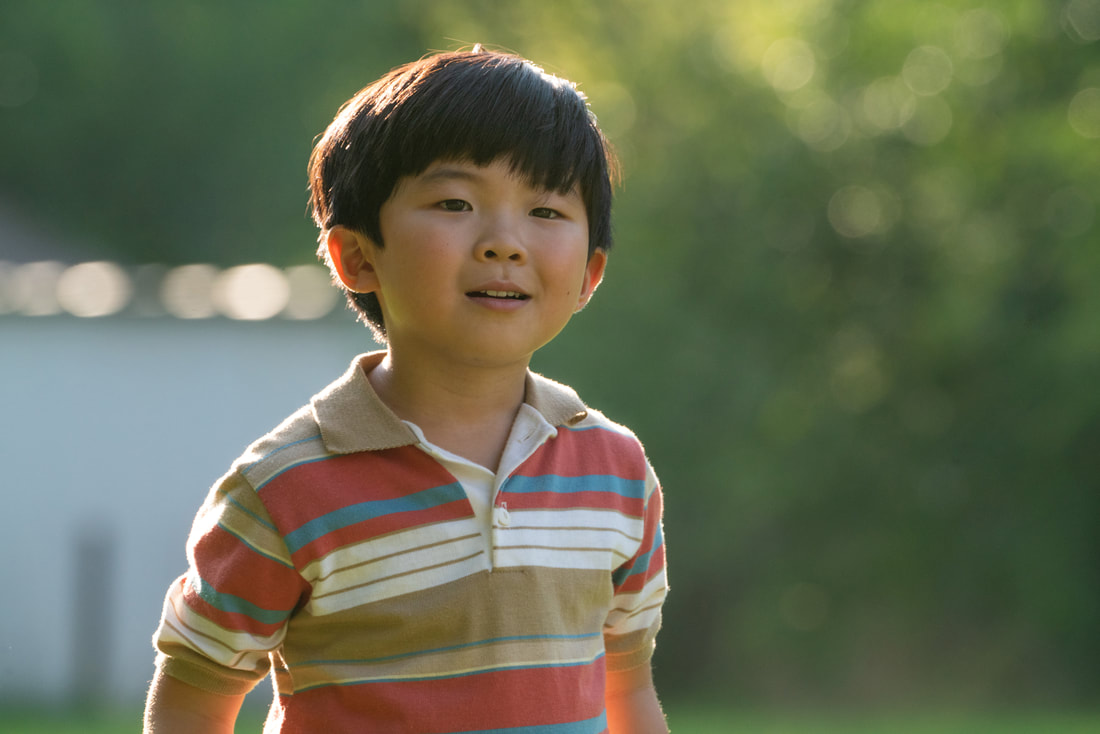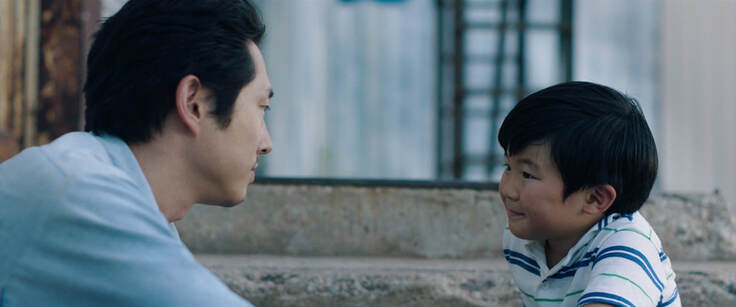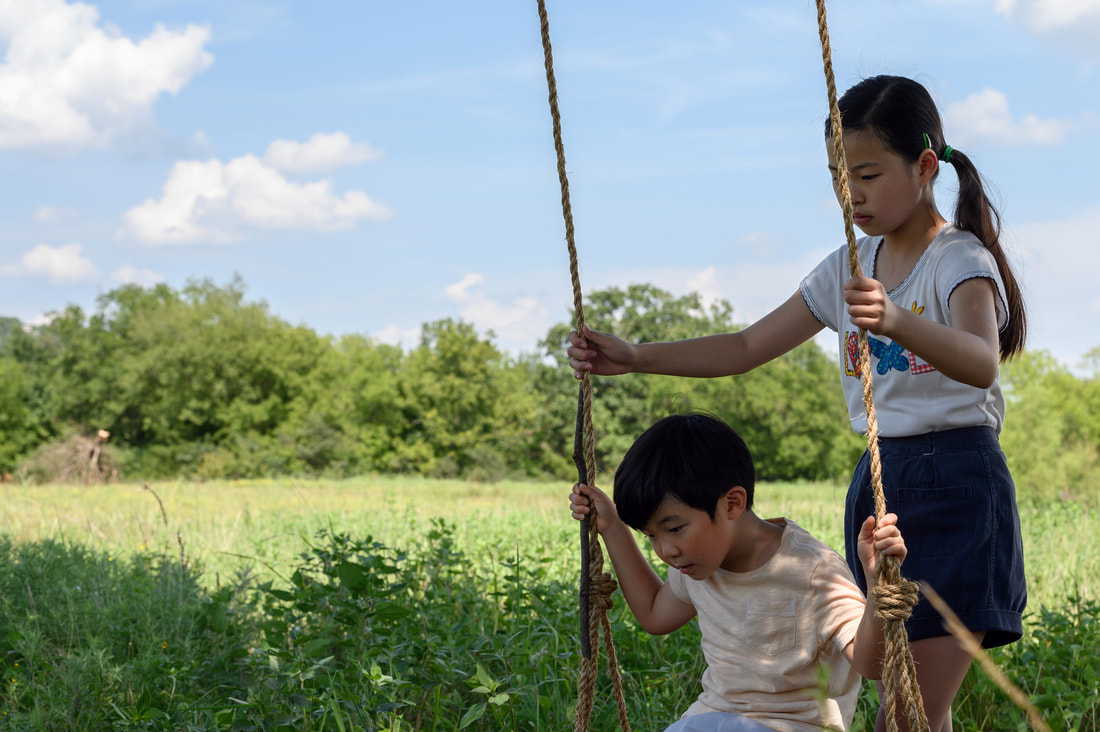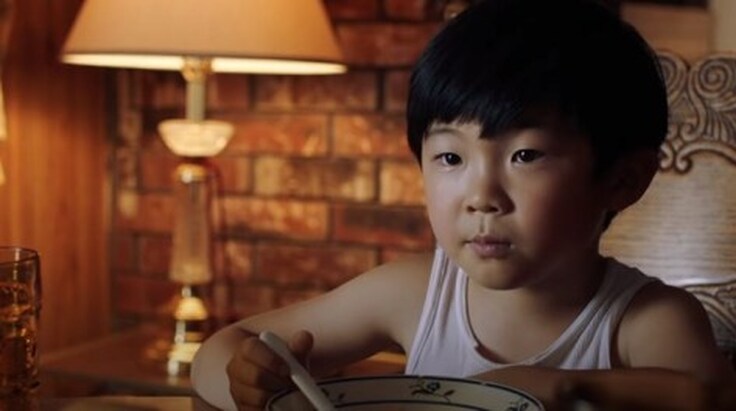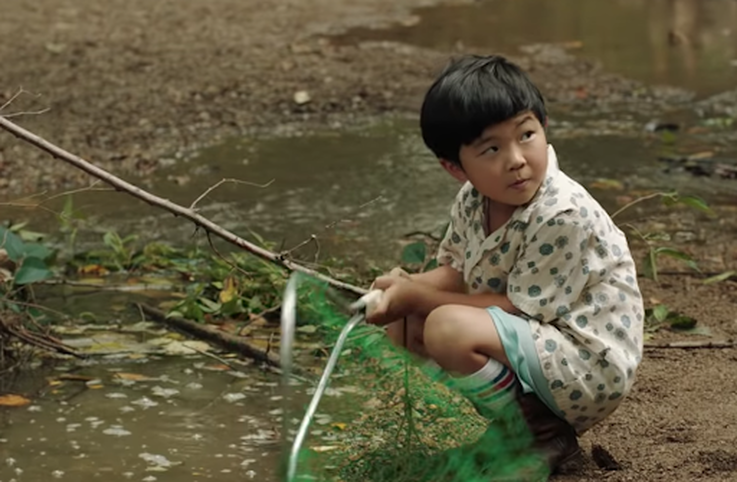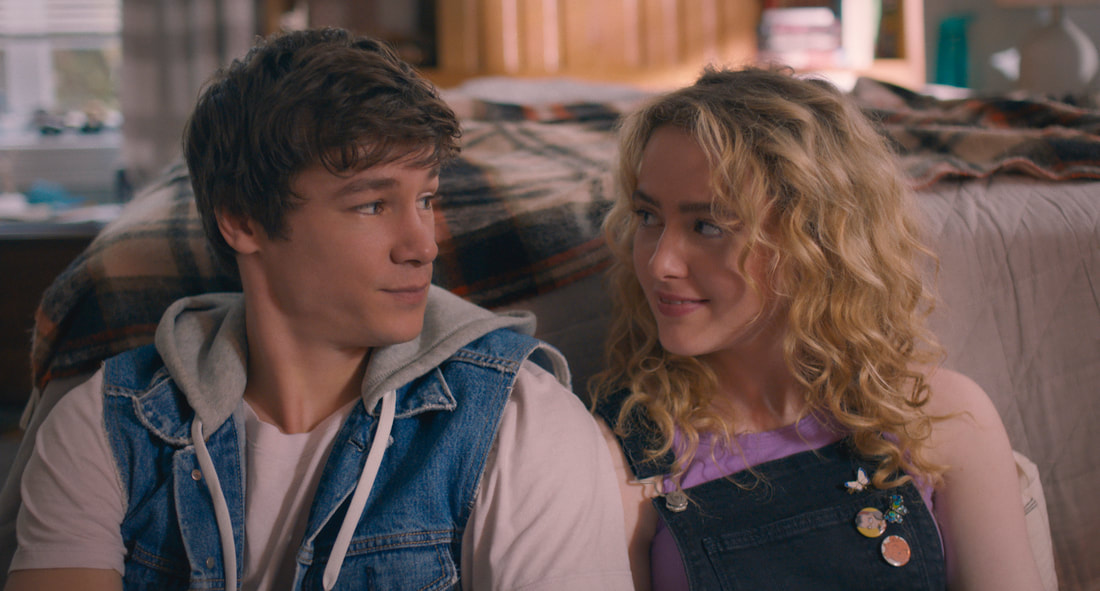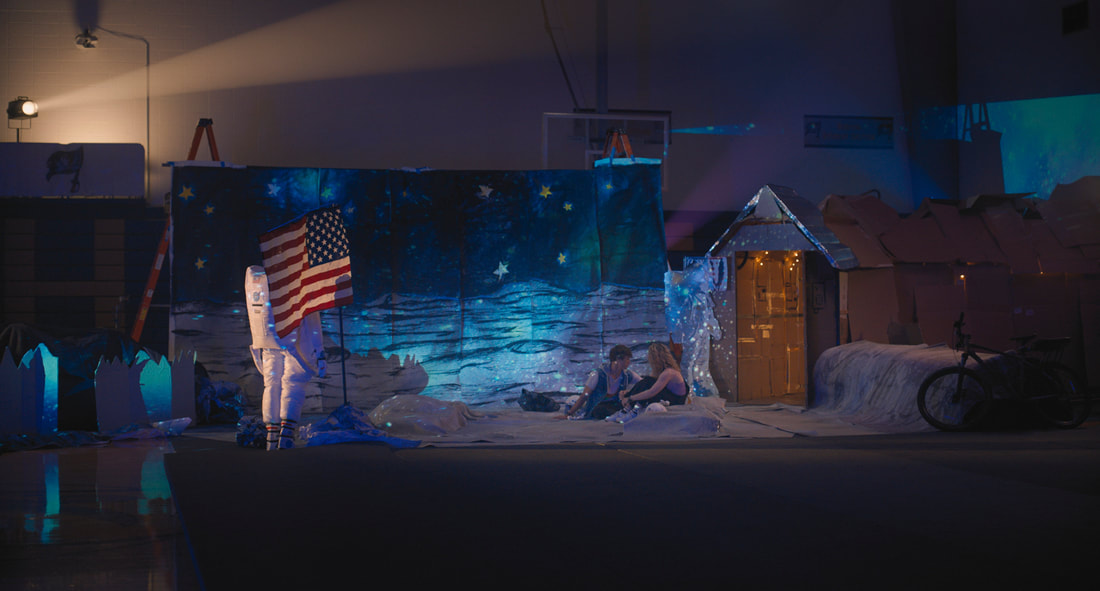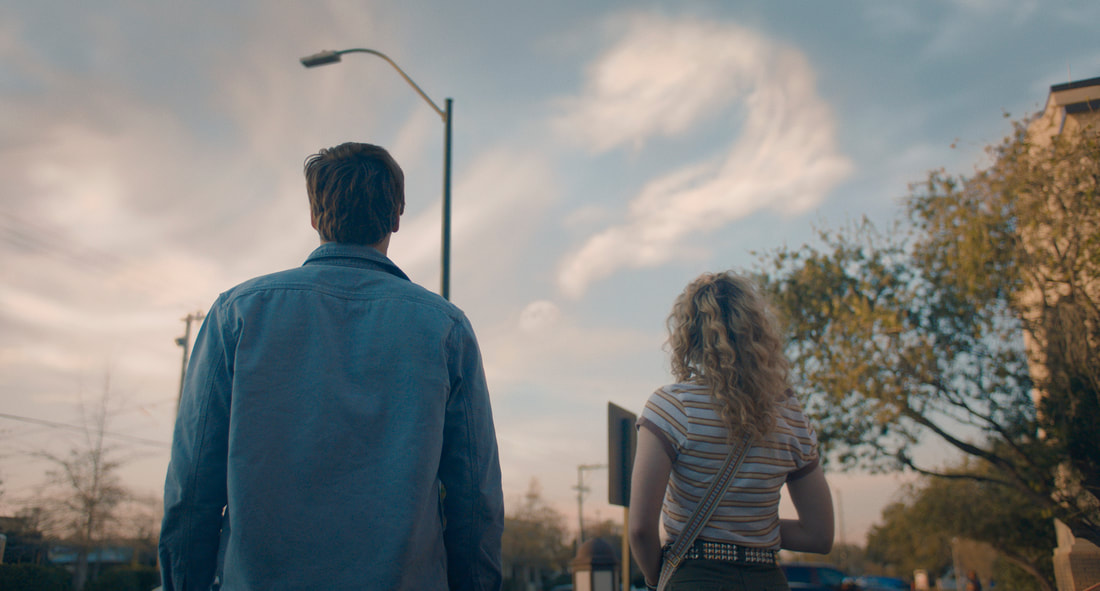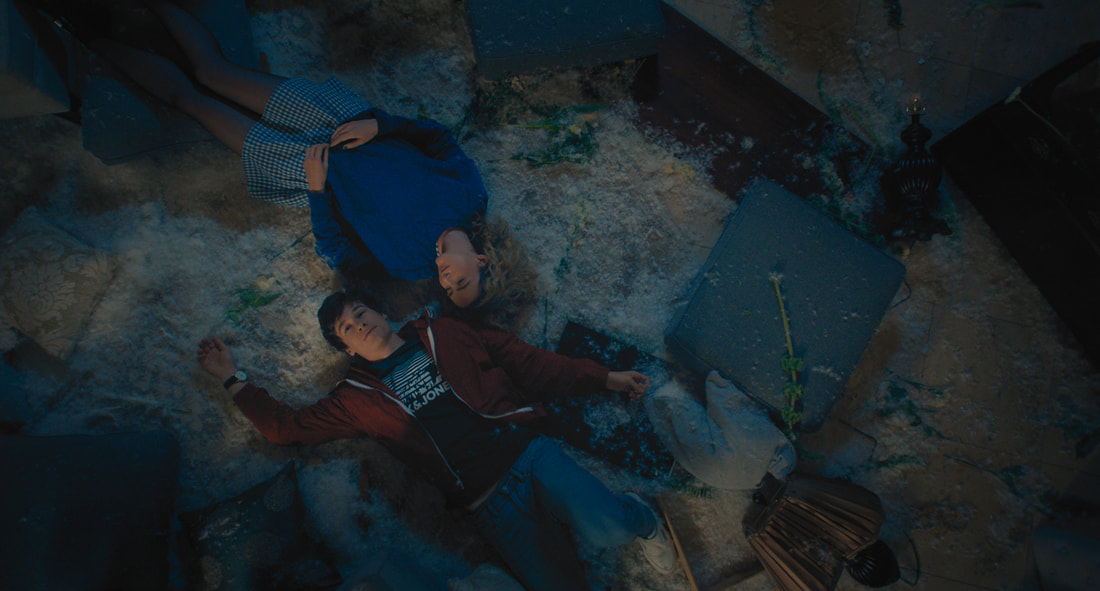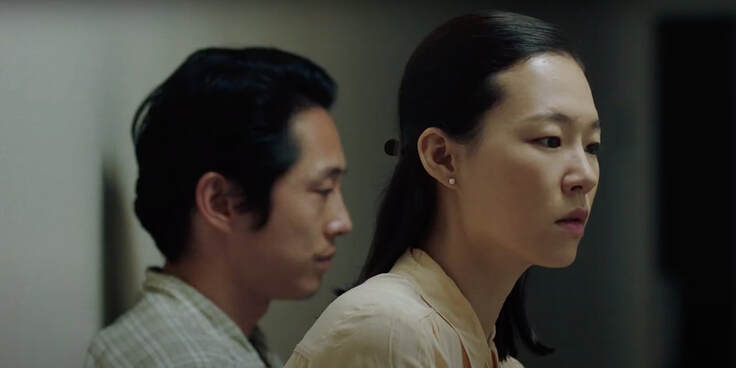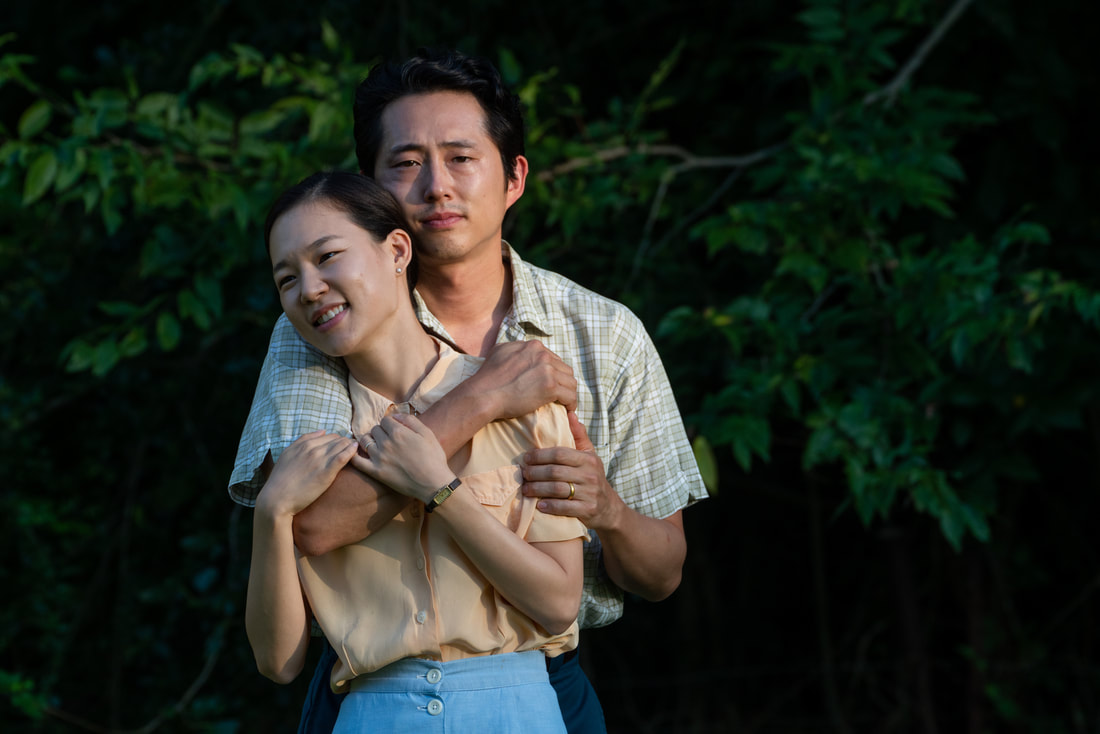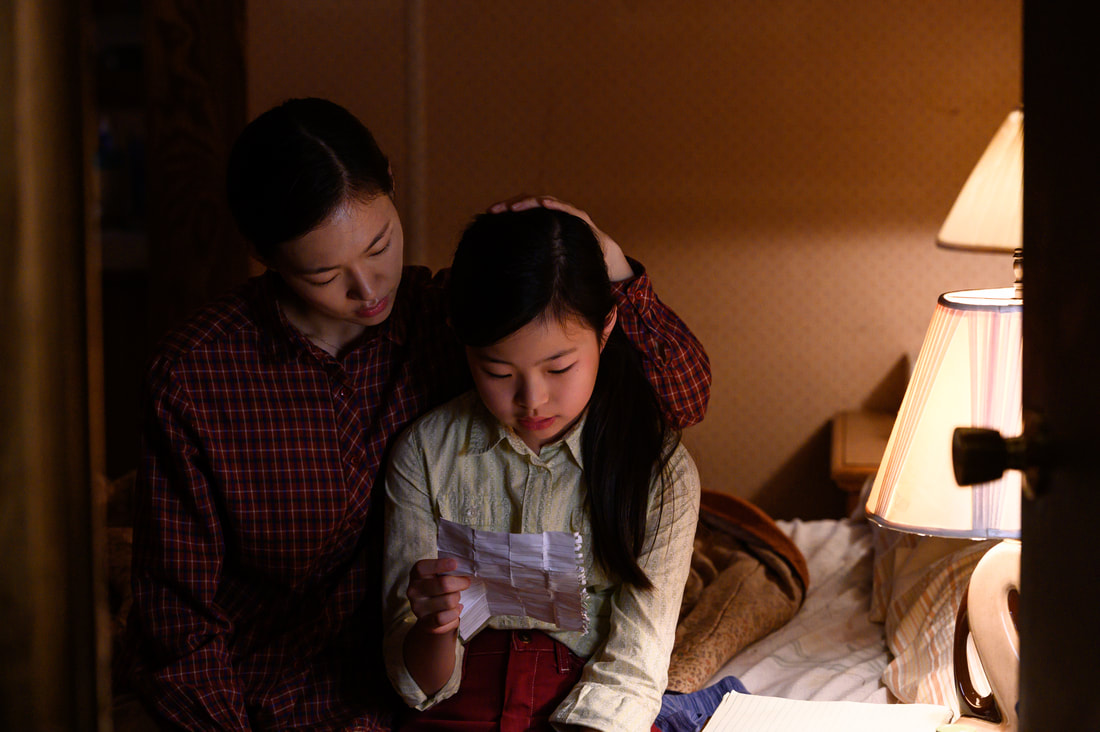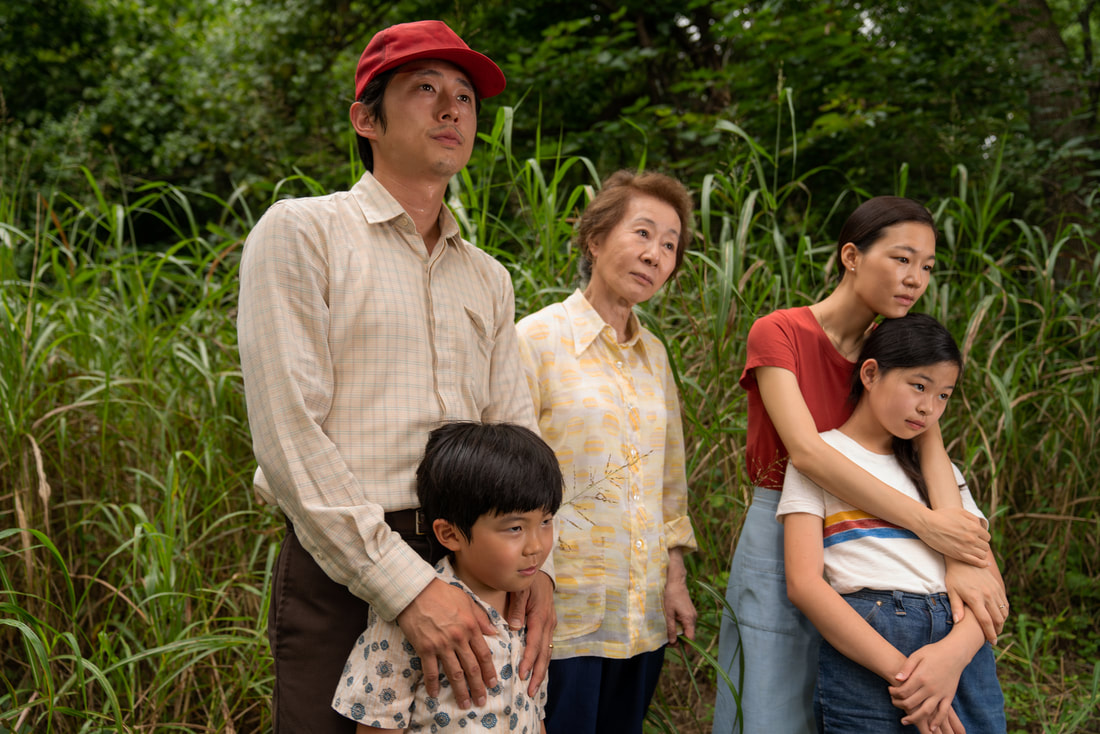|
Interview by Camden Ferrell
Over a year after its premiere, Minari is receiving attention this awards season and was even in the National Board of Review’s Top Ten Films of 2020. A lot of this attention is surrounding the performance of legendary Korean actress Yuh-Jung Youn. She was recently nominated for best supporting actress by the Screen Actors Guild, becoming the first Korean actress to do so. In anticipation of Minari’s release in theaters, disappointment media had the opportunity to talk with the seasoned actress about her new movie.
On Receiving Her Role
disappointment media: Can you tell us a little bit about how you met Lee Isaac Chung and got the role of Soonja?
Yuh-Jung Youn: Okay. I have a dear friend, and she’s Korean, and she was born and raised in Germany. We were going to make a film together back 20 years ago, but the project fell apart. I tried to comfort her and her friend Grace Lee, and then we became friends later on. Then, she was back and forth from Germany to Korea and America. And then one time, she asked me to have some kind of Q&A thing while we were at the Busan International Film Festival. And her friend, [Lee] Isaac Chung, is teaching at the University of Utah, and he's going to bring his students because they'd like to meet us and then have a Q&A, so I said yes. We had the Q&A, and I was very shocked and impressed. Isaac mentioned my first movie [Women of Fire]. It's from back in the '70s, and Isaac wasn't born at the time. I wondered how such a young guy could know about my first movie. I found out his major was film history, so I was very touched and moved. The students weren’t interested about that movie, so we didn't talk about it. That was the first meeting with Isaac. Later on, my friends brought a script. It's Minari, and it's written in English, and as you know, my English is not perfect. In the middle of reading the script, it was very real to me. During that day, I hadn’t finished yet, so I called my friends and asked, “Is this [Isaac’s] story?” She said yes, so I said, “Okay, I will do it.” That's the story. disappointment: You’ve had an extensive career working in South Korean film and television. How did your experience working on Minari, an American film, differ from your past experiences as an actress? Youn: I don't know. The director was Korean and Steven [Yeun] was Korean and Yeri [Han] was Korean, so we didn't feel that much different working in Korea, but the staff is different, and then we try to speak English and there are some words I don't know. Like they say that first team comes in, or something like that. I thought, “Who is the first team?” That kind of special word. I couldn't get it, but later on, we picked it up. There's always a first team that comes in, and I’m like, “Who is first team?” and I was looking around, and I realize that I’m first team. disappointment: Earlier in your career, you came to the United States before returning back to Korea. How did your experiences in the United States shape your performance in Minari? Youn: That’s hard because I didn’t have that experience myself. I have a lot of friends who came to the States as immigrants. Of course, they struggled with English, and because of the time, they were well-educated, but they couldn't get a proper job. Every nation loves their second generation. They’re trying to do their best to give them a better future than we have, so they work hard, and they sacrifice for them. I think it is kind of insulting. Since they cannot speak English perfectly, they have to do something like chicken sexing, like they do in the movie. So yes, I've been watching many families and many parents sacrifice and work for their children, so that hurts. On Filming Minari (Contains Mild Spoilers)
disappointment: In Minari, you play a witty and foul-mouthed grandma. are there any people in your life who inspired this character?
Youn: Actually, the first question I asked Isaac was if I should imitate [his] grandmother. He said, “No, no, you do it your own way,” so that gave me freedom. I was thankful because it’s different with every director. Some of them want you to do it a certain way or to imitate their grandmother. They might say she has a very specific behavior or something like that. Sometimes, I feel like I cannot move around if the director gives me that kind of direction, but Isaac was smart enough not to give me that direction. He told me to just do whatever [I] want. I felt very trusted, so I just played myself if I were in her position and in her situation. That was my imagination. I was witty because I think the culture difference between her grandson and her makes people laugh. Also, I like to be witty, and I like to laugh all the time. I don't want to be serious. disappointment: What was the most difficult scene to film for your character? Youn: [Soonja] got paralyzed because of the stroke, and usually, on set, somebody had to be with me to correct me and tell me if I should move this way or that way. I practiced a lot before I left Korea. I have a very nice neurologist friend, Dr. Kim. I was very grateful and thankful that he showed me a lot of videos, and he actually was performing in front of me how to do this and that. So that scene was just trying not to forget that this side is not supposed to move because of the stroke. That was very tricky. And of course, the fire scene was very dangerous to film. disappointment: What do you think families of Korean immigrants will like most about this movie? Youn: I don't know because they all have a different memory like you. Everyone has a grandma. For instance, my first son, he is a Korean-American living in New York, and he's not trying to watch this movie. I was so shocked that he's not watching it; his mother is in the movie. I later found out that he saw the trailer, and it made him cry. He saw me playing go-stop, and he remembered his great aunt was playing go-stop when he visited Korea. It’ll be different for everyone. disappointment: What do you hope audiences will learn from your character after watching Minari? Youn: You know, if they see the movie, then it’s their part to learn and understand my role and the movie. I cannot suggest how to watch the movie. I'm not the guidance. Whatever they individually feel and think, that's just part of this movie, so it's fine with me. disappointment: In the movie, you have great chemistry with Alan Kim. Can you tell us what it was like to work with this young and talented actor? Youn: First, I was like, “Wow, what am I going to do with this young boy?” He’s a seven-year-old boy, but he was like a sponge to me; Isaac told him to do this. He just treated me like a grandma. We usually did a master shot together, him and me. He has a good memory, so he memorized all the lines perfectly. So, we would do the first master take. Later on, if Isaac needed some kind of shot from him, he directed [Kim] in a very wise and smart way. That's how David became that character. He was really good. Like a sponge, he just absorbed everything. On Her Career and Korean Representation
disappointment: Your career has spanned many decades, and you've worked with so many different directors. Are there any directors you want to work with in the future that you haven't worked with yet?
Youn: When you're young you can hope for a lot of things, but at my age, as I’m older, I know the chance has to come to me, and the role has to be suitable for me. If somebody asks me to do it, then I will do it, but I’m not hoping to do it with a specific director because it will give them pressure. disappointment: Over the last few years, we've seen an increase in the popularity of Korean culture in the United States. What do you hope for the future of Korean representation in Hollywood? Youn: I'm doing some kind of project now. That's why I'm in Vancouver. There's a lot of Korean directors here actually. I was hoping you guys could have a better future than us, so you can introduce a lot of Korean culture, so we can share it. After all, we are all the same human beings. The culture may be different, but later on, it's all the same. It's not about discrimination anymore. It’s just sharing together, like you have this kind of culture, we have this kind of culture, but in the end, we love each other. We are all trying to make the future better, not fight each other, not talking about discrimination or something, just that we are all the same. Whether your face is yellow or white, it doesn't matter. We are all same human beings, so I wish we can share together and then love each other.
Minari will be in select theaters February 12 and on VOD February 26.
0 Comments
Interview by Camden Ferrell
When Minari first premiered at the Sundance Film Festival in 2020, many were impressed by the performance from 7-year-old Alan S. Kim who plays David. In anticipation of the release of Minari, his debut film appearance, disappointment media had the opportunity to talk with Kim and discuss his role in the movie.
On Joining the Minari Cast
disappointment media: You made your film debut as David recently, and it's a great debut. When did you first know you wanted to be an actor?
Kim: I guess when my mom told me about Minari I’m like, “I guess I'll do this.” disappointment: And what was it like to audition for Minari? Was it nerve-wracking? Was it exciting? Alan S. Kim: It was exciting, but the heat wave was kind of hot, like really hot. It was so hot, and the hotel was so well air-conditioned, so when I had to go out to film, I'm like, “Do I have to go out? It's way too hot.” disappointment: And you were filming in Tulsa, Oklahoma, correct? Kim: Yes, in the summer. disappointment: What did you like about the area? Kim: Well, it was big and cool, but kind of western, I guess? On Preparing for and Filming Minari (Contains Mild Spoilers)
disappointment: Whenever you got the role of David, what did you do to memorize your lines and prepare for the role?
Kim: Well, for the Korean lines, my mom would speak and help me memorize. I would repeat it, and if I still didn't get it, she would do some of the motions to help me understand. disappointment: In the movie, you speak both Korean and English very well. Did you learn both of those languages growing up, or was there one you learned first? Kim: My first language was Korean and then my teacher helped me learn English, but before she even taught me how to speak in English, I always spoke Korean to the teacher. Yeah, that was really bad. disappointment: What did you find was the most exciting part about filming Minari? Kim: Probably when I gave pee to the grandma [Youn Yuh-jung]. Because it’s just so funny, but kind of naughty. It's like, giving pee to someone innocent. disappointment: That was hilarious. So, you and Steven Yeun, who plays your father in the movie, you guys seem like a real father and son. What was it like to work with him? Kim: It was really fun working with him because he really was kind and awesome. Since I was such a slow eater, he would say, “Hey, let's have an eating contest. Fastest one to eat is the winner," just so he can make me eat faster. disappointment: So, giving the pee to your grandma was your favorite part of film, but what was the most difficult scene to film for you? Kim: Probably nothing because everything was so easy except the heat wave. Yeah, it was really hot. disappointment: What do you think kids are gonna like most about this movie? Kim: Probably the funny parts because most kids like to see funny parts. And yeah, they will really like that. On Being Behind the Scenes
disappointment: In the movie, there's lots of Korean dishes and beverages you have to drink, so what is your favorite Korean meal?
Kim: Well, the Korean meal there on set was probably like the rice and the kimchi and lots of things like that. In the movie, I had to drink Mountain Dew. Other than that, I would drink nothing but like apple juice and orange juice, so when I drink Mountain Dew, I'm like, “Yum!”. disappointment: What was it like working with a movie big sister [Noel Cho] on set? Kim: It was really fun. Off set, we would watch Captain Underpants, and we would play games like Talking Tom Hero Dash. disappointment: Are there any behind the scenes secrets or stories that you want to tell us? Kim: Like, behind the scenes, for the raining scene we would watch the TV and then Steven would carry me into the car. That’s more of a cut scene. It didn't actually rain. It came from like a giant rainmaker thingy majiggy. Then, there's also a part where I go to Johnnie's house, but in that part, there was a scene that was cut out. I had to ride a bike but since the bike was so big, they had to attach it to the go-kart, and I had to fake that I was riding the bicycle. disappointment: In the movie, your grandma teaches you how to play a card game. I believe it's called go-stop. Did you actually learn how to how to play that in real life? Kim: Yes, my mom taught me. disappointment: What's the most fun part about that game? Kim: I don't really care about winning or losing, but if I win, I don't really boast, but I'm like, “Oh, yeah!” kind of like that. I really like to play. On David and Minari's Message
disappointment: How do you relate to the character of David?
Kim: Well, mostly everything except he has an unhealthy heart while I have a healthy one. We both have older sisters, and we like to annoy them. And we also follow rules on our own terms. Because if my mom says to sleep, I'm like, “Okay,” then I sleep somewhere random. disappointment: David's a fun-loving kid. He likes being mischievous. He likes goofing around, but in your free time, what do you like to do for fun? Kim: I like to play video games and watch TV. My favorite video game is either Minecraft or Roblox. disappointment: Now, what do you hope people learn the most from Minari after watching it? What's the lesson you want people to learn from the movie? Kim: I'm not sure, but the lesson would probably be if you believe in yourself, you can do it. Probably something like that. disappointment: Minari is a movie about family and what a home truly is. What does home mean to you? Kim: A house mostly, but more so than a house, love. On His Future as an Actor
disappointment: What's next for you and your career as an actor? What do you plan on doing next?
Kim: More movies, and I'm doing another movie sometime in March. I think it's called Latchkey Kids. disappointment: That's great. Are you excited for Latchkey Kids? Kim: Yeah. disappointment: What advice do you have for any children who want to be in movies? Kim: Don't overreact and don't rush. Also, don't really do anything that's not yourself. disappointment: Who do you want to thank the most for all the help they've been when filming this movie? Kim: My family.
Minari will be in select theaters February 12 and on VOD February 26.
Interview by Sean Boelman
Kathryn Newton and Kyle Allen are two of the brightest rising stars working in Hollywood today, and the new Amazon Original Movie The Map of Tiny Perfect Things allows them to act opposite each other. Telling the story of two teenagers who find themselves stuck in a time loop, it's a charming sci-fi romantic comedy that offers a nice dose of escapism. We at disappointment media got the opportunity to discuss the film with Newton and Allen. Check out the interview below!
On Time Loops
disappointment media: So The Map of Tiny Perfect Things is a time loop movie. Do you guys have any favorite time loop movies?
Kyle Allen: Ooh, ooh, ooh, pick me! Happy Death Day. Jessica Rothe, hashtag Desperado Kathryn Newton: Obviously, that's the best time loop movie, Happy Death Day. Allen: Happy Death Day for the win. disappointment: That's a great one! So imagine if in real life, you were stuck in a temporal anomaly? What would you guys want to do all day? Allen: Hmm. Kathryn would eat cheese fries. This I know. Newton: I would eat Hot Cheetos, please get it correct. Allen: Yeah, I would find a way to contact aliens. And then I would invite them to Earth. And then if they're friendly, we would have a tea party. And if they weren't friendly, I would fight them on the rooftops of New York City. It would be glorious. Newton: I would still be eating Hot Cheetos. disappointment: On a similar note, if you could bring one person into the temporal anomaly with you who would it be? Newton: Kyle Allen. Allen: Oh, geez. Oh, gosh. That's, that's embarrassing. Because I was gonna say Katherine Newton. Because you know, like track record. Experience. We already know we get along in a time loop. Newton: We already know we kill it. disappointment: So on a bit more of a serious note, the idea of a time loop kind of rings surprisingly true today, with everybody having to stay home. There's a lot that people can kind of sympathize with. How do you think this is? Newton: How do I think it is? I think it's kind of weird that we made this movie right before quarantine started. We wrapped early because we had to go home. And I thought it was just going to be an allegory for what it felt like to be a teenager. You know, I always felt like when I was young, like I was eternally bored, in like this teenage wasteland, and my future was never going to happen. And this movie takes that and exaggerates what that is. And I feel like every day we're living that way right now. So I hope if someone sees this movie that they can take away that you create your future right now. You know, you can create a brighter day just right now in this moment. Allen: Yeah, I think I think the movie talks a lot about really paying attention to where you are and the people around you in a very kind of closed circuit environment, which most of us are in right now. Which is forcing us to really deeply appreciate the things and the people around us, regardless of the state they're in. On the Tiny Perfect Things in Life
disappointment: I think one of the other things that really resonated with me about the movie is that one of the messages is about enjoying the little things in life. What do you hope about this message resonates with audiences and what resonated about that message with you?
Allen: I think I learned to do just that. I mean, you know, the only moment you have is now and you know, the quality of your life is dictated by your ability to appreciate that moment. And so I think that's just a really great reminder, a lot of people know it, you know, but we need these things explained to us in a multitude of ways. You know, we need to experience it for ourselves. And I think this film really helps with that. And I think that'd be a wonderful thing for people to take away from it. Newton: I really couldn't say it better. I think that this movie, we've seen time loop movies before. But there's also something about being young and experiencing first love and first heartbreak and first true grief that everyone can relate to, at any age. So I think that everyone's been there, everyone has been a teenager and not knowing what their future was going to be and not knowing who they are. And it's hard to learn that you're the only one who can really control that. And I think that this movie really does a good job of showing that it can be okay. You can move on. And you don't have to be done. disappointment: Do either of you have like a favorite tiny perfect moment, either from the film or from something you just experienced in your life that's just a small thing you enjoy? Newton: We had so many perfect moments on set. Allen: Today, I was on my way to do these these interviews back from a doctor's appointment, and I was going up Highland, which is one that I've always gone up, you know, while I was going to acting classes and stuff like I was I would always go by them. It's a bunch of billboards, and I was looking at those billboards and I think to myself, like one day, it'd be one of those billboards. And today, I saw our billboard. And I was just like, well, that's a tiny perfect thing. But it was like a big perfect thing. You know, it wasn't that tiny. It was big, because it was so big, it's billboards. But I freaked out. That was great. Newton: We had a perfect moment. Our last scene, our kiss scene where we kiss each other, the line is "Oh, let me try this one more time. I have a hair in my mouth." And we talked about it. We were like, "how are we going to get a hair in my mouth?" And I kid you not. We did it in one take. And there was literally a hair in my mouth. Magic. On Pop Culture Easter Eggs
disappointment: So something else that I really enjoyed in this film was all of the pop culture references and Easter eggs that there were in the film. Do you have any favorites?
Allen: She tells Mark that he watches too much Doctor Who. Newton: That is great. Allen: I definitely like told myself that I was researching for this film, but the reality of which I just binged almost all of Doctor Who. Newton: I don't know, I was gonna say something about how [Margaret's] into anime, but it's really not that big of a deal in the movie. I also love that we watch Time Bandits. I don't even know, does this count? Just like that they play video games, like whatever video game they're playing is like super of the times that we're in. You know? Allen: They invented that, that game. The game you see on the screen is not the game that we were actually playing like they made that game in post. But we were playing this other game called Dark Souls. And we loved that game. We had to play it for like, probably like 16 hours. We were playing this game. So we all got really, really good at it. I thought that it was a really good time. disappointment: You brought up Time Bandits. The big question is have you seen Time Bandits? Allen: Yes. disappointment: Did you like Time Bandits? Allen: It is a glorious film. It's got Sean Connery. I mean, like, it's spectacular. It's got Mesopotamia. It's got Napoleon Bonaparte. It's got giants. I mean, it's just a big win. On Filming The Map of Tiny Perfect Things
disappointment: What drew you to these roles?
Allen: I would say definitely, you know, the team behind it, the creative team behind it is fascinating, you know. Weed Road, FilmNation, all of the people involved. They don't make bad movies Newton: They only make good movies. Allen: They only make good movies. And you know, obviously, Kathryn being attached, I was like, that would be an amazing costar to have. And then as well as the physical aspect of the film, I live for it. I absolutely live to be in those environments where so much is demanded of me on so many levels and the acting is physical, you know? Newton: I was really interested in Margaret, I really wanted to figure out why she was the way she was because I related to her, you know, and I wanted to grow too. And when I first met Ian, he asked me what I thought, how the movie should be shot, like, what does the movie need? And I said, Well, you need me. And you need this, you need this kind of guy. And you have to believe that these two people are in love. Because at the heart of it, this is about a girl not wanting to grow up. So what is it that is pushing her to have this experience? And I really wanted to do that myself, too. I think you have to be ready to receive, you know, you have to be ready to change. And ask for more. And I think that Lev Grossman wrote a beautiful story, a beautiful short story, and then the movie, we got to dig deeper into these two people. And you got to find out who Margaret was. So I was just excited from a creative aspect to be open, like our director Ian was so collaborative in letting me do whatever I wanted. And instead of telling me what to do, he'd whisper like, ideas and inspiration. So it was just a really great process of making the film. disappointment: The two of you have excellent chemistry together on scene. What did you like most about working with each other? Newton: What do I like most about Kyle Allen? Hmm, let me think. Allen: Hmm... I don't know. It's pretty tough. Pretty tough. It's really hard to find things that are you know, likable about Katherine Newton. Like, gross. [laughs] She looks out for you. She's not gonna let you mess up. Newton: Aww, yeah. I've got your back. I felt like you had my back, too. I think my favorite thing is, you know how much Kyle really cared about the story. And he really wanted it to be perfect. He worked so hard on every aspect of the character, but also, we had a lot of scenes that were like routines like choreography. And I don't think that I would have been able to do it without someone as great as Kyle in that field like no one else could have done it. So he really supported me. And I think that Mark and Margaret are Mark and Margaret. We found a good harmony in this movie. disappointment: And you mentioned the scenes with extensive choreography. They're really impressive. What was challenging about pulling those off? Newton: Well, it wasn't just us that had to be a part of it. You know, Kyle and I worked really hard on creating that. But also our DP you know, Andrew Wade, he had to be a part of our routine too. We had to work with him. He was just as much part of the choreography as we were, not to mention the 1000 extras, who were also part of the team to create this big, magical picture. Allen: Yeah. We had trained chefs in those kitchens. That was cool. In the kitchen scene where we're moving through the kitchen. Yeah, I mean, I don't know, I wouldn't look at it as like challenging. Like, you know, learning to drive is challenging. Just you know, cooking grilled cheese can be challenging depending on how exhausted you are at the given moment. Sorry, recent experience of mine. But I mean, I loved every second of it. Everyone showed up, brought their full selves. But like, I think those environments where there's like a million things you have to pay attention to, it's like, where I'm at my most comfortable. disappointment: But also, both of you have like a very physical background — Kyle in dancing and acrobatics and Katherine in golf — how do you think that helped you prepare for those scenes? Newton: Huge, I think you have to have such stamina and such focus that you need to have all of that working all the time. And there's no excuses. Failure is not an option, when you have three hours and the sun is setting, you know, you have to get it. But because we all love this movie so much, it was not hard at all. It was easy. Allen: Yeah, I absolutely think, you know, having emotional and physical focus and awareness, the ability to do those things are absolutely vital to make to make those things happen. Because you have to learn things and integrate them into your body really quickly. As an athlete, like that's your job as an athlete, any kind of athlete has to do that. And that's required of you on set, you have to pick up like a physical task, you know, like a subtlety of movement, how to do I set this plate on it, you have to be able to do it very fast and integrate it very quickly, because there's a million other things moving around you. And you're also acting, you also have to be, you know, reciting dialogue as you do the physical act. So there's, there isn't enough time to, to practice it over and over and over and over again. We took time for some of those things, but a lot of it was on the fly. On the Film's Message
disappointment: Something else that really stood out is that there are a bunch of little nuggets of wisdom spread throughout the film. Do you have one that particularly resonated with you?
Allen: Time is the thing that when you spend it, you don't get it back. Newton: I don't understand that. Please explain. Allen: I think it's recognizing the permanence of things. I mean, they're in an exception. And I think in life, you try and make these exceptions for things that happen to you or things you want to have happen. I sometimes I'll talk to people about, you know, dreams versus realities, like, I don't want to achieve my dreams. I want to achieve my realities, like I don't want to dream I want a reality, I want it to actually happen. And that quote, you know, time is the thing that when you spend it, you don't get it back, it just recognizes kind of the value of permanence, of you know, of not being able to go back. That means something. Newton: You kind of said this earlier, Kyle about how Mark thinks it's about him. And then he meets Margaret and realizes it's about her, but I feel the same way about Margaret. You know, she's dealing with her grief, and she doesn't want to get off track. She wants to stay stuck. But then when she gets outside of herself, and she sees how beautiful things can be., she realizes that you can't just live for you all the time. Carpe Diem, you have to seize the day, you know, you have to make the day you have to make the most of your day. Allen: That's one thing that that Mark realizes. And I guess, you know, Katherine said that Margaret realizes as well, is that you're not really living if you're not paying attention to the people around you, which I think is really evident in the film, as well. It's something that our characters learn to do. Not because they're rejecting it, you know, they're rejecting a bit, but they're also they're just young, they just don't know yet.
The Map of Tiny Perfect Things hits Amazon Prime on February 12.
By Camden Ferrell
Minari dazzled audiences when it premiered at the 2020 Sundance Film Festival where it won the Grand Jury Prize and Audience Award. The movie was recently nominated for a Golden Globe and three SAG awards, and in anticipation of its wide release, disappointment media got the opportunity to speak with members of its cast. Yeri Han, who plays Monica, talked to us about her role in the movie and what she enjoyed about making this film.
On Receiving the Role of Monica
disappointment media: I want to start by congratulating you on Minari's nomination earlier today for Best Ensemble at the Screen Actors Guild Award. I'm very happy for you all.
Yeri Han: Thank you so much. disappointment: How did you first meet Lee Isaac Chung and get the role of Monica? Han: So actually, I came across this project through the script first. It was sort of the first draft translated version, so there were a lot of gaps to be filled in for Monica's character, and I was worried whether I'd be able to fully comprehend it. When I met Isaac, I decided that I was going to do this film no matter what because he's such a great person, and I was already looking forward to the process of making Monica's character with him. disappointment: What about Monica's character interested you the most? Han: I thought to me, Monica was the strongest character in the film, although she didn't have her own aspirations and dreams that she wanted to pursue. Nevertheless, she was the strongest force that holds the family together. I believe that the force that really was holding this family together was love, and I wanted to capture and portray this character sincerely. disappointment: Are there any people in your life or family members who shaped your performance as Monica and inspired you? Han: First of all, my own mom and dad married very young, so it was before their ego fully developed, so we went through the growth pains. And I also had six aunts, so I had a glimpse into lives of six different women from that time that helped me tremendously with my character. I also had a very loving grandmother like Soonja [Youn Yuh-jung]. On Filming Minari (Contains Mild Spoilers)
disappointment: What were some of the challenges with making Minari?
Han: One of the real challenges that I can remember is the weather and the climate. It was always 40 degrees Celsius the whole time, and I was really worried about the child actors. But other than that, it wasn't so much of a challenge. disappointment: I've seen Minari two times now, and both times I watched it, I'm always impressed with how great your chemistry is with Steven Yeun. What was it like to work with him? Han: Steven is such a sweet guy, and he’s very honest. When we were working together on set, he would always ask me if I'm okay, how I felt about certain scenes, and if we wanted to do it together. He would always want to discuss our performance together, which enabled us to put our heads together and think about better ways to make that scene. And in a way, I felt that I was meeting Steven’s own childhood through this film, so it motivated me to try and portray Monica's character to my best ability. disappointment: What scene in particular was your favorite in the film? Han: There are too many. Personally, it's the scene before Soonja has a stroke, and she holds David in her arms and comforts him. Also, the scene where all of Jacob's hard work and effort goes up in flames in that fire at the end. Whenever I look at that scene, it brings back the memory of the emotion that I had at the time. On Her Career and Korean Culture
disappointment: What is the difference between making movies in Korea and making a movie in the United States?
Han: I don't know if I can make that comparison since this was a small budget film production. I guess the difference that I could say is that I had to speak English on the set. I guess that's why a lot of the crew or the people who are involved in the project kept telling me, “Yeri, this isn't the typical experience of filmmaking in the States. You should keep making more films here,” I guess to make sure that I'm not discouraged by the experience. disappointment: For the last 13 years, you've been very busy as an actress. Is there any genre of film or television that you haven't done that you want to do in the future? Han: This is one of the questions that makes me think when I'm asked that question. As far as I'm concerned, an actor is someone who waits for a role or a film project to come to her, so I don't think about what kind of genre of films that I want or characters that I want to portray. It's the moment I get a script that I like or the director that I want to work with that I suddenly have that burning desire and want to do it and feel ownership that this is mine. And when that falls through, then I get sometimes very hurt. I guess I fall in love when that happens, when things come to me. disappointment: In the last few years, we've seen Korean culture becoming much more popular in the United States. How do you feel about this sudden increase in interest in Korean culture? Han: I can really feel that the world has changed for younger generations, the generation that's younger than me. It's become faster. The world has come closer together. I feel very lucky that so many people have interest in our popular culture of music and film, and that there is that emotional connection happening across cultures. Currently, there are a lot of projects and new content being made and a lot of money that's injected in the market. I don't know how long that's going to continue, but I hope that we will continue maintaining that unique quality of Korean cultural assets and continue making films. On the Universality of Minari
disappointment: This is a movie about the Korean American experience, but it's a story that everyone can relate to. What about this movie makes it so universal?
Han: I guess because everyone has their childhood. And because they can relate to Jacob at times and at times, relate to Monica or to Soonja. Especially if you have the memory of having a grandmother like Soonja then it will resonate particularly more. Another thing is that there is not a single bad character in the film. Everyone is so innocent, and there is nothing that is mean or bad or hurtful in the film. They all have the warmth in their hearts in the film. I guess that's what makes this film special. One of the great virtues of this film is that rather than forcing certain emotions on the audience, it gives the audience that room to distance themselves, take a step back, and gaze at what's happening because what happened in this family is told in such a very calm manner. disappointment: And for my last question, what do you hope audiences learn the most from your character after watching Minari? Han: The feeling of love. That strong root of the feeling of love that Monica has is the power that binds this family together and prevents them from splitting up. I want the audience to take away that feeling, and I guess that's what makes the root of Minari strong. And although Monica's character cries a lot in the film, I think she's the strongest character in the film. And I want the audience to take away that love that Monica has.
Minari will be in select theaters February 12 and on VOD February 26.
|
Archives
March 2024
Authors
All
|
|
|
disappointment media
Dedicated to unique and diverse perspectives on cinema! |

